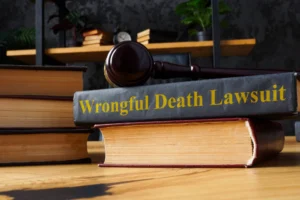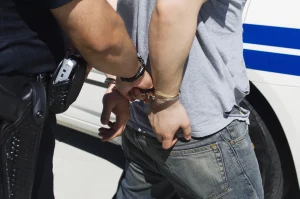If you or someone you know is facing smuggling charges, you may not yet realize the full extent of the trouble you’re in. What starts as a smuggling case — whether involving people, drugs, or firearms — can quickly escalate into a federal trafficking charge. Federal prosecutors often push for harsher charges based on evidence of broader criminal intent, involvement in organized operations, or the use of coercion, fraud, or violence.
Understanding when smuggling becomes trafficking is crucial for protecting your future. The penalties for trafficking are far more severe, often involving mandatory minimum prison sentences and steep fines. If you are facing either or both types of federal charges, the Guzman Law Firm is here to help. With experience defending complex federal cases across Texas and beyond, we know what it takes to challenge the government’s narrative and defend your rights.
Call our office today at (956) 516-7198 for a confidential consultation to discuss your options and begin building a strong legal defense.
Can trafficking and smuggling be used interchangeably?
Many people assume “smuggling” and “trafficking” mean the same thing, especially when used in the media or pop culture. However, these terms represent distinct legal charges, and confusing the two can create serious misunderstandings about the charges and penalties involved.
What’s the difference between smuggling and trafficking?
Smuggling typically refers to the transportation of contraband — people, drugs, or weapons — across borders in violation of law. It often involves willing participants and focuses on the act of illegal movement itself.
Trafficking, on the other hand, involves exploitation, commercial transactions, or organized crime. It can occur even without border crossings and typically centers on control, coercion, or financial profit.
Is smuggling a felony or misdemeanor?
In federal court, smuggling charges are felonies. And when they involve repeated actions, organized criminal groups, or endanger human life, they’re aggravated felonies. While there are some state-level smuggling offenses as well, which might be considered lesser offenses, both federal smuggling cases and smuggling offenses at the state level always involve felony-level prosecution, with penalties ranging from several years to life in prison depending on the context.
Human smuggling vs human trafficking
Human smuggling and human trafficking are often confused, but under federal law, they are very different crimes with different consequences.
Human smuggling refers to the voluntary transportation of individuals across borders, usually in exchange for payment. The key element is consent; although the act is illegal, the people being smuggled typically agree to it.
Human trafficking, however, involves exploitation through force, fraud, or coercion. Victims may be transported, harbored, or recruited to perform labor or commercial sex acts against their will.
What is the minimum punishment for smuggling of persons vs trafficking?
Federal human smuggling penalties (8 U.S. Code § 1324) may include:
- Up to 10 years in prison for basic smuggling offenses
- Up to 20 years if the smuggling caused serious bodily injury
- Life imprisonment if someone dies during the smuggling operation
Federal human trafficking penalties (18 U.S. Code § 1591) are even more severe:
- 15-year mandatory minimum for sex trafficking involving minors or force
- 20 years to life for repeat offenders or those causing serious harm
| When smuggling becomes trafficking… |
| If someone is smuggled into the country and then forced into labor or prostitution, the charges can quickly escalate to human trafficking, and the sentence can multiply tenfold. |
What is the difference between drug trafficking and drug smuggling?
Smuggling drugs across a border may seem like trafficking at first glance, but the law makes important distinctions. Drug smuggling generally focuses on the act of illegally importing controlled substances into the United States — often by land, air, or sea. The person caught with the drugs may or may not be the one profiting from their distribution.
Drug trafficking, on the other hand, refers to the manufacture, distribution, or sale of controlled substances. This includes running drug operations, transporting large quantities within the country, and having intent to sell or distribute.
In these cases, prosecutors may elevate a simple drug smuggling charge to federal drug trafficking, triggering:
- Minimum sentences of 5 to 10 years (depending on drug type and quantity)
- Enhanced sentences for prior convictions or conspiracy charges
| When smuggling becomes trafficking… |
| Smuggling becomes trafficking when the government can show that: You were part of a larger supply chain or criminal enterpriseYou had intent to distribute or profit from the drugsYou transported drugs with the knowledge they would be sold |
Gun smuggling vs gun trafficking
With rising concern over firearms crossing state and national borders, gun-related offenses are getting more attention than ever. While both gun smuggling and gun trafficking are federal crimes, they are prosecuted under different statutes and carry different implications.
Gun smuggling refers to the unlawful import or export of firearms, often in violation of the Arms Export Control Act or the Gun Control Act. It typically involves transporting weapons across borders without proper licenses.
Gun trafficking, however, is broader. It can include:
- Buying guns in one state to illegally sell in another (“straw purchases”)
- Supplying weapons to criminal organizations or gangs
- Selling firearms to prohibited persons (e.g., felons, undocumented individuals)
In both cases, federal agencies like the ATF, FBI, and Homeland Security are involved, and prosecutors often push for enhanced charges.
Penalties can include:
- 10+ years in federal prison per offense
- Mandatory minimums if crimes involve gangs, drugs, or violent felonies
| When smuggling becomes trafficking… |
| Gun smuggling becomes trafficking when: You’re involved in the distribution or resale of firearmsYou supply weapons as part of an organized scheme or conspiracyThe firearms are used in connection with other criminal acts (e.g., drug sales, violence) |
If you’ve been accused of transporting firearms across borders, the government may attempt to link you to a wider trafficking network.
Facing elevating charges related to smuggling? Call Guzman Law Firm.
Whether you’re under investigation or already facing charges for smuggling, the line between smuggling and trafficking can quickly become blurred in federal court. Prosecutors are often aggressive in trying to turn smuggling allegations into trafficking convictions, using conspiracy laws, cooperating witnesses, and enhanced sentencing guidelines.
When smuggling becomes trafficking in the eyes of the law, it’s so important to have an experienced federal defense attorney in your corner who knows how to:
- Challenge government evidence
- Suppress illegally obtained testimony or searches
- Disprove claims of intent to distribute, exploit, or profit
- Negotiate reduced charges or favorable outcomes
At Guzman Law Firm, we’ve helped individuals across Texas fight back against life-altering federal charges involving human smuggling, drug offenses, and weapons crimes. We know the federal system, we understand prosecutorial tactics, and we fight to win.
If you’re unsure where your case stands, don’t wait. Call Guzman Law Firm today at (956) 516-7198 for a confidential consultation.
More Helpful Articles by Guzman Law Firm:
- What to Know about Federal Conspiracy Charges
- What Is Probable Cause in a Search for Drugs or Firearms?
- Who Is Liable in a Multi-Vehicle Accident in Texas?
- How Texas Law Handles Uninsured Drivers in Car Accidents
- What Are the Consequences of Missing a Court Date in Texas?





